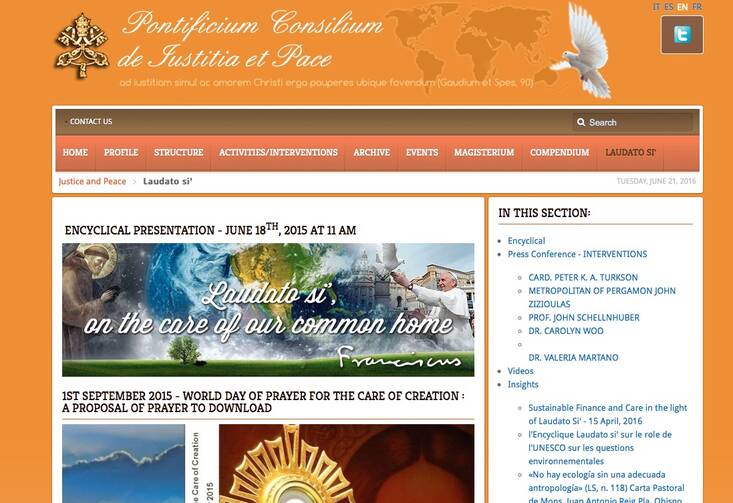Marking the first anniversary of Pope Francis' encyclical on the environment, the Pontifical Council for Justice and Peace launched a new website dedicated to the document and efforts around the world to put its teaching into practice.
The site—www.laudatosi.va—"witnesses not only to the impact of the encyclical, but also the creativity and generosity of the people of God everywhere in the world," said Cardinal Peter Turkson, council president.
The council celebrated the first anniversary of the document, "Laudato Si'," on June 20 with a small conference at Rome's Basilica of St. Mary in Montesanto.
Christiana Figueres, executive secretary of the U.N. Framework Convention on Climate Change, in a video message, said that as scientists, governments, economists and concerned citizens were pushing for an international agreement to combat climate change, Pope Francis' encyclical provided the "moral imperative to take bold action."
Published six months before the Paris summit on climate change, she said, the pope's document raised the issue in "the hearts and minds of hundreds of millions of people who may not otherwise have considered climate in their daily lives."
The science and economics of change to protect the environment are essential, Figueres said, but "the guidance of our moral compass" is what will made a difference.
Archimandrite Athenagoras Fasiolo, an Orthodox pastor in Treviso, presented the Italian edition of the book, "Cosmic Grace, Humble Prayer: The Ecological Vision of the Green Patriarch Bartholomew I."
Pope Francis' encyclical and the collected environmental reflections of Ecumenical Patriarch Bartholomew of Constantinople, he said, show that "the Holy Spirit does not cease to work without interruption in his church," inspiring leaders to teach care for "all the work of God."
Jesuit Father Michael Czerny, an official at the justice and peace council, told Catholic News Service, "Laudato Si'" does not tell people what to think, but guides them through the complexities of the issue of climate change and care for creation, and calls them to reflect on their response.
"The variety and intensity of debate" within and outside the church, he said, "is a very healthy response" because the pope wrote the encyclical to contribute to the debate and dialogue.








